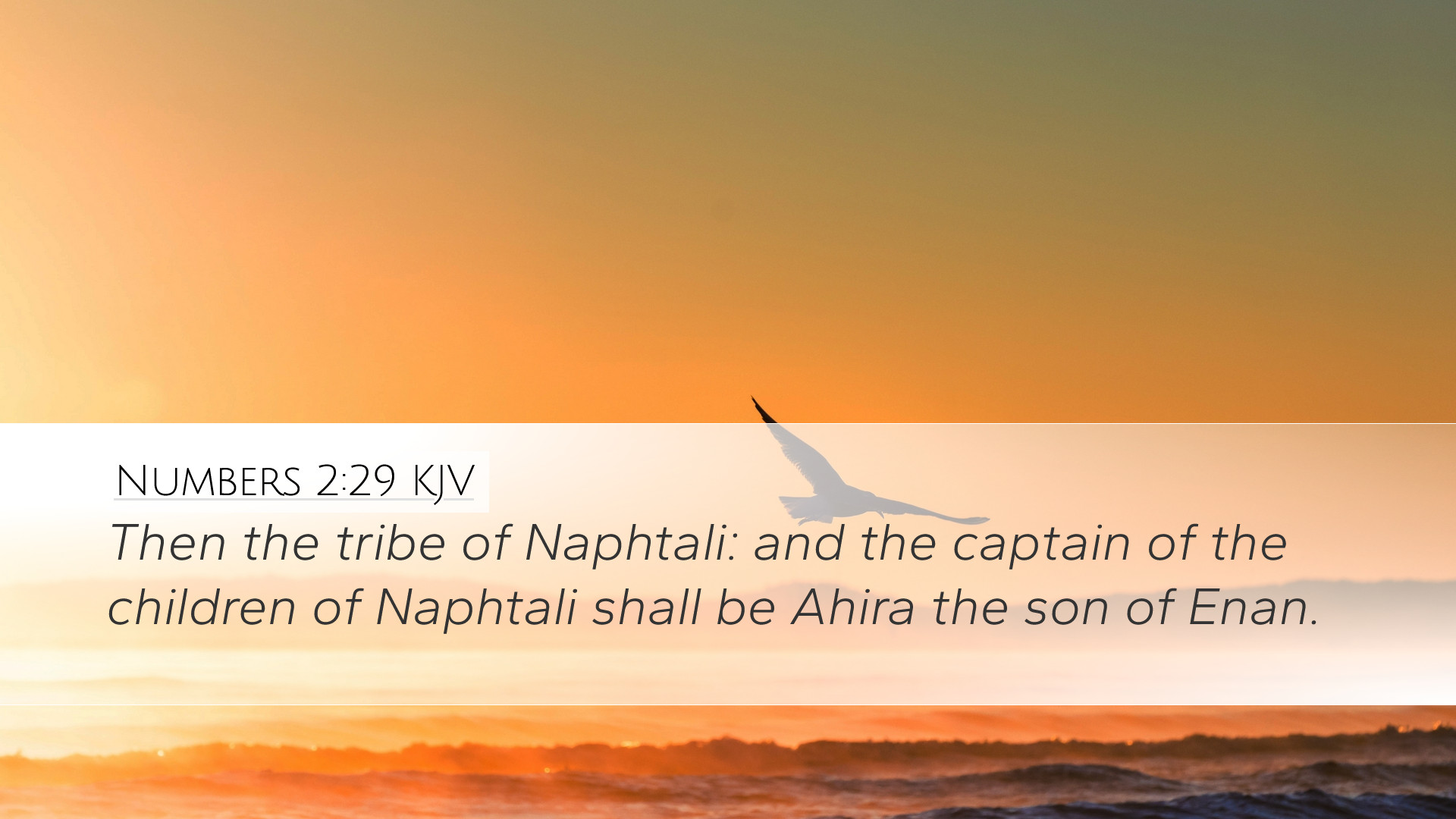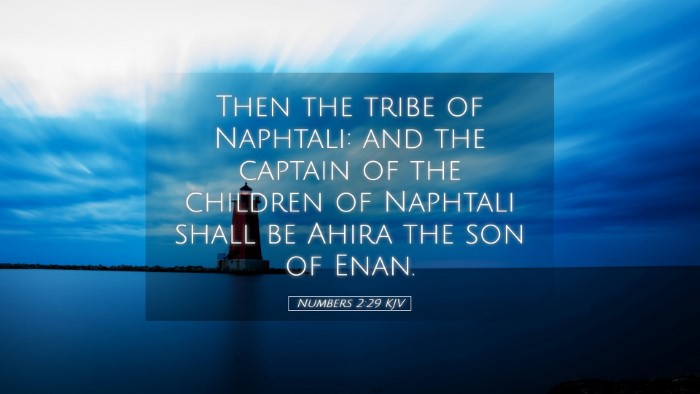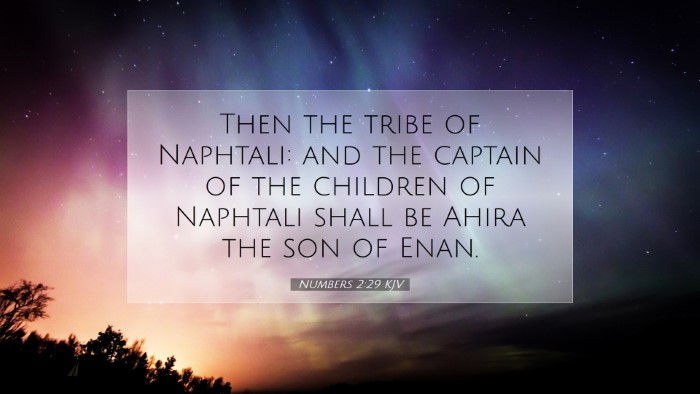Commentary on Numbers 2:29
Verse: Numbers 2:29 - "The tribe of Gad: the chief of the children of Gad shall be Eliasaph the son of Reuel."
Introduction
The Book of Numbers captures the organization and structure of the Israelite camp during their wilderness wanderings. In chapter two, the Lord instructs Moses and Aaron regarding the arrangement of the tribes of Israel, a crucial aspect for maintaining order and identity. This verse specifically highlights the tribe of Gad and its leader Eliasaph, serving as a point of reflection on leadership, tribal identity, and divine order.
Overview of the Tribe of Gad
The Tribe of Gad, one of the sons of Jacob, is often noted for its warrior spirit and strong character. The distinction of Gad as a tribe that camped to the south of the Tabernacle signifies not only geographical importance but also a spiritual positioning beneficial for the tribe's mission.
Key Insights from Commentaries
-
Matthew Henry:
Henry observes that the leaders of the tribes were assigned specific roles, emphasizing the importance of organization within the community of Israel. He highlights Eliasaph's lineage, reminding readers that God's selection of leaders often involves familial and tribal connections, pointing to divine providence in the establishment of leadership.
-
Albert Barnes:
Barnes provides insight into the name 'Eliasaph', which translates to 'God has added'. He posits that this name reflects the tribe's heritage and suggests an emblem of blessing, indicating that through divine favor, Gad's position among the tribes is one of strength and responsibility. This encapsulates the broader perspective of the nation of Israel depending on coordinated efforts led by God-appointed leaders.
-
Adam Clarke:
Clarke delves into the genealogical aspect, noting that Eliasaph was the son of Reuel (also known as Jethro, Moses' father-in-law), which is noteworthy as it connects Israelite leadership to Midianite roots. This offers a rich commentary on how God's people are drawn from diverse backgrounds, underscoring His intention for inclusivity in His plan.
Theological Reflections
This verse invites deep theological reflection. The mention of Eliasaph signifies not just a leader but a representation of God's choice in governance and order among His people. This aspect is crucial for understanding how God orchestrates order in chaos and appoints leaders to guide His people through uncertain times.
God's Sovereignty in Leadership
The appointment of a chief from Gad reminds us that leadership is a divine construct. As noted in the commentaries, leaders are not merely individuals who hold power - they are agents of God's overarching plan. This leads to a greater understanding of how leaders in modern contexts are called to reflect God's character and implement His will in their communities.
The Role of Tribal Identity
The tribal structure provides insight into the identity of the Israelites. Each tribe carried its unique legacy, strengths, and responsibilities. Gad's characteristics as a tribe of warriors highlight the diverse roles within the body of Christ today. Understanding one's place in the 'tribe' or community underscores the importance of belonging, mission, and responsibility in the church today.
Lessons for Contemporary Leadership
Pastors and leaders in contemporary settings can glean valuable lessons from this passage. Leadership that is rooted in divine purpose leads to the flourishing of the community. The chapter underlines the importance of being faithful to one's calling and serving the community effectively, reflecting Christ through service and integrity.
Application for Modern Believers
As modern believers reflect on Numbers 2:29, they are encouraged to consider the importance of divine guidance in leadership roles, the value of unity amid diversity, and the call to honor one's heritage while looking forward in faith. Leaders are reminded of their responsibility to God and their communities, while congregants are prompted to support their leaders through prayer, understanding, and active participation in communal life.
Conclusion
In summary, Numbers 2:29 offers deep insights into leadership, tribal identity, and the sovereign hand of God in guiding His people. Through the lens of respected commentaries, we are reminded of God's plans in the past and His ongoing work among His people today. Leaders are artifacts of His calling, orchestrators of His will, and conduits of His grace, echoing the legacy of tribal leaders like Eliasaph as they pave the way for future generations.


